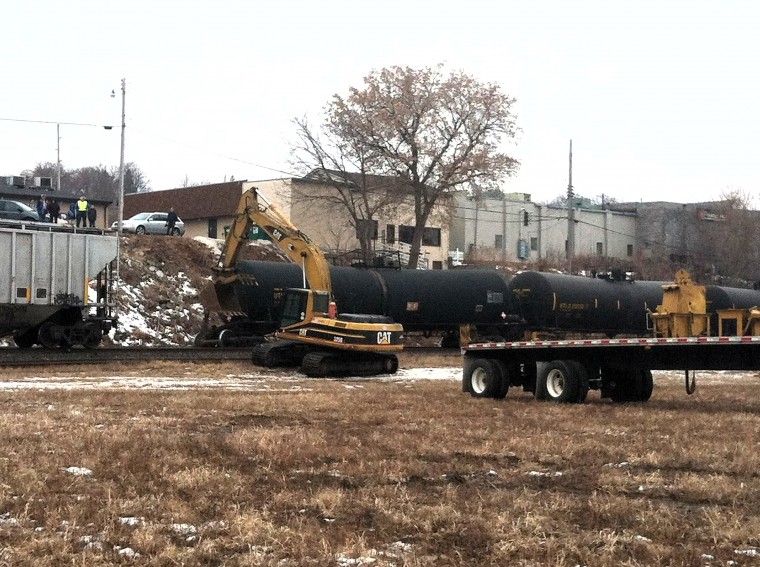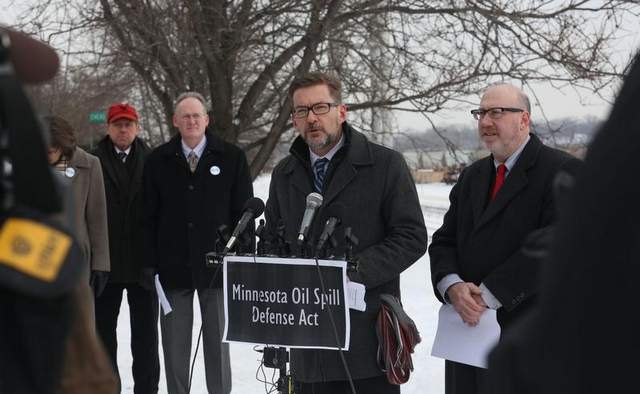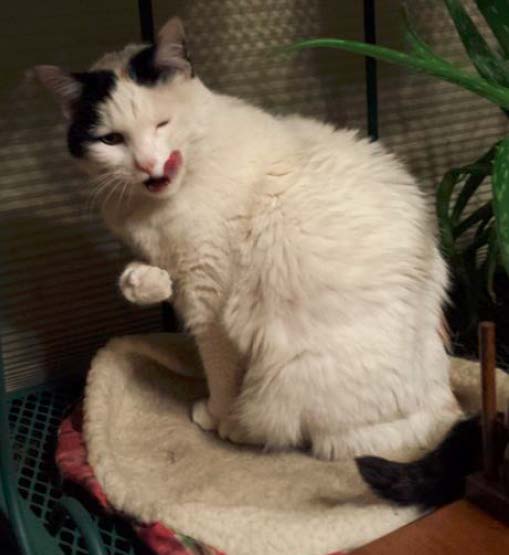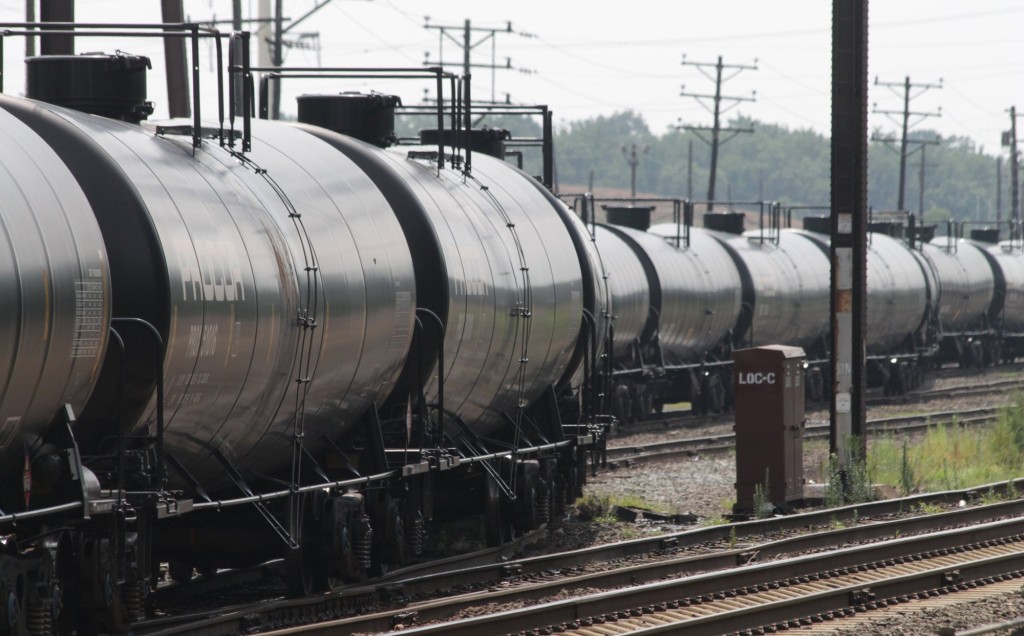10 a.m. TODAY – MN House Transportation Finance Committee webcast
February 27th, 2014
House Transportation Finance Committee
Thursday, Feb. 27, 2014 10:00 AM
Watch: Live Event | Enhanced version
Northstar Commuter Rail delays.
Informational hearing on oil freight and pipeline safety.
In the opening, Frank says that it will be continued on Tuesday, March 5. He expects there will be a hearing on a bill on March 12, and it will also go to the Public Safety Committee.
DOT Orders Crude Transport Changes!
February 25th, 2014
 Above is photo from Red Wing derailment, from Republican Eagle.
Above is photo from Red Wing derailment, from Republican Eagle.
The U.S. Department of Transportation has ordered stricter standards for transportation of crude oil, stemming from the Bakken oil train disasters cross country. It’s about time!
DOT – Emergency Restriction – Prohibition Order (Docket DOT-OST-2014-0025)
From the Order, it seems they’re getting it figured out:
Here in Minnesota, Rep. Frank Hornstein is holding an INFORMATIONAL hearing. He’s the chair of House Transportation Finance, and if you want to testify (this is not about a specific bill, that’s pending), contact the Committee staff and let them know you’re interested in speaking out:
Administrator: Matt Scherer 651-296-3316
Legislative Assistant: Rachel Nelson 651-296-5486
You can also contact committee members and let them know what you think, here’s the Committee Page and emails are listed.
Now, back to the DOT Order — here are some specifics about misclassification leading to improper shipment:
And they specifically address the Lac Megantic explosion and found that the rail cars that had NOT exploded were correctly classified:
There are a lot of interesting links in this report, links to investigations, etc., including this page, about the investigation that really got the DOT rolling:
PHMSA Ongoing Bakken Investigation Shows Crude Oil Lacking Proper Testing, Classification
From this report, note the links to Notices of Proposed Violations, chump change, but nailing down some violations (note, for example the Hess Corporation one, with multiple violations, and there’s a sliding scale taking into account past violations, so will they be on them in the future? We shall see.):
As a result of today’s findings, PHMSA has expanded the scope of Operation Classification to include testing for other factors that affect proper characterization and classification such as Reid Vapor Pressure, corrosivity, hydrogen sulfide content and composition/concentration of the entrained gases in the material. PHMSA will also move forward with the Notices of Proposed Violations totaling $93,000 that were issued to Hess Corporation, Whiting Oil and Gas Corporation, and Marathon Oil Company, and will continue working with the rail and oil industry based on Secretary Foxx’s Call to Action, including sharing of additional data, and recommendations for future safety initiatives.
MN Rules 7849 & 7850 Updates
February 25th, 2014
It’s like winter in Minnesota — will this rulemaking never end? We’re pretty much ensconced in Minn. R. ch. 7850 now, siting. PROGRESS! Here’s where it stands:
The next meeting of the Rulemaking Advisory Committee is TOMORROW:
February 26, 2014 @ 9:30 – 11 30 a.m.
Rulemaking Advisory Committee
PUC Building, Basement (look for signs)
121 – 7th Place East
St. Paul, MN 55101
MN Companion Animal Protection Act!
February 24th, 2014
That’s old Steiner here, telling all you legislators that it’s time to adopt more than a cat or a dog! Our legislative session starts on Tuesday, and now’s the time to adopt the Minnesota Companion Animal Protection Act.
The language: HF 391 Minnesota Companion Animal Protection Act
It was introduced last year in the House (HF 391) and Senate (SF 1204). It was forwarded on to their respective Ag committes, and stalled out.
To revive it, I think the best thing to do is to contact those listed as authors and the chairs of House and Senate Ag Committees that you want to see the Companion Animal Protection Act, HF 391 and SF 1204, passed this year. Emails of authors and Chairs here to cut and paste:
rep.john.benson@house.mn (House author)
rep.paul.rosenthal@house.mn (House author)
rep.jeanne.poppe@house.mn (Chair – House Agriculture Policy Committee)
sen.julie.rosen@senate.mn (Senate author)
sen.jeff.hayden@senate.mn (Senate author)
sen.matt.schmit@senate.mn (Senate author)
sen.foung.hawj@senate.mn (Senate author)
sen.dan.sparks@senate.mn (Chair – Senate Jobs, Agriculture & Rural Devo Committee
Looking at the bill, I’ve got a few comments, and I’m making them as a member of the Board of the Humane Society of Goodhue County, where I’ve learned a few things about Companion Animal Protection, though to be clear, I am NOT speaking for HSGC, nor do my comments reflect the policies of HSGC:
First, in the Definitions, lines 2.8 – 2.15, the Private and Public sheltering agency should mention requiring licensure of the agencies and to acknowledge that licensure includes a limit the number of animals they may hold.
Line 2.11, I think “has” should be “have.”
Still in Definitions, lines 2.20 – 2.22, “stated” should be deleted, and paragraph should say:
Subd. 10. Rescue group. “Rescue Group” means a collaboration of individuals organized as a Minnesota non-profit or designated by IRS as a nonprofit under section 501 (c)(3), and whose primary purpose is animal rescue and adoption.
For consistency, I’d lock in all holding periods to five (5) days, and not two or three depending on circumstances (see lines 3.12, 3.16, 3.20, 4.2, et al.)
Line 3.29, should add, at the end of line, “and public.” Shelters do move animals between them to give animals a new venue to increase adoption opportunities.
Sec. 4, lines 4.1 – 4.9 should be expanded to include specifically prohibiting euthanasia of owner relinquished animals unless irremediably suffering and/or non-rehabilitable. The MCAPA should also include language requiring that shelters provide owners wanting to surrender their animals with information on training and behavior options prior to accepting the animal. Owners often dump animals at shelters who are perfectly good, healthy animals “to be put to sleep.” Not acceptable.
Lines 5.1 – 5.2 need clarification — if animals are not candidates for redemption, transfer, or adoption, how will they “leave the shelter in reasonable condition?” This sounds like a mandate for palliative care to limit suffering, but the intent and language of these two lines is not clear.
Lines 5.24 – 5.31 — How will we know if “any of the organization’s current directors, officers, staff or volunteers have been convicted..” A registry?
Add to Sec. 7, line 6.32: microchips, identification tags, and licenses. All animals adopted or transferred out of public and private sheltering agencies shall be microchipped.
Add to Sec. 7, at end of line 7.1, before line 7.2: The holding period does not begin until the photo and description have been posted.
ADD an animal abuse registry. Animal abuse, neglect, and hoarding isn’t a one time thing, it’s a pattern of behavior and by tracking those abusing animals, we can prevent adoptions into environments that are dangerous for these animals we’re working to protect:
Sec. 8. [346.67] ADOPTION OR TRANSFER CRITERIA.
Subd. 1 (language in lines 7.12 – 7.15)
Subd. 2. The state Department of Agriculture shall maintain a publicly accessible online registry of individuals, business, and organizations convicted of animal abuse, neglect and/or hoarding for reference by public or private sheltering agencies and rescue groups, which shall include name of offender, current address, other known addresses, date of conviction with statutory citation, and summary of offense(s). Public or private sheltering agencies and rescue groups, kennels, and individuals shall be prohibited from adopting, selling, or giving animals to those on the registry and members of their households.
Add to Sec. 9, l. 7.20: (1) there are no empty cates, kennels, or other living environments in the shelter, or the shelter is filled to its licensed capacity.
Add to Sec. 12, ENFORCEMENT, line 10.12: A public or private sheltering agency, rescue group, or individual may compel a public or …
Those are the thoughts off the top of my head, and this is a work in progress. Now, on to the House and Senate authors and Committee chairs! Once more with feeling, here they are:
rep.john.benson@house.mn (House author)
rep.paul.rosenthal@house.mn (House author)
rep.jeanne.poppe@house.mn (Chair – House Agriculture Policy Committee)
sen.julie.rosen@senate.mn (Senate author)
sen.jeff.hayden@senate.mn (Senate author)
sen.matt.schmit@senate.mn (Senate author)
sen.foung.hawj@senate.mn (Senate author)
sen.dan.sparks@senate.mn (Chair – Senate Jobs, Agriculture & Rural Devo Committee
Railroads miss the train…
February 22nd, 2014
Degasify… degasify… degasify… degasify… Bakken crude must be degasified before it’s put into tankers and goes down the track! What’s so hard about that to understand?
Yesterday, the DOT issued a letter of agreements with the Association of American Railroads:
The majority of which is blather that is make work feel good nothingness, the only thing with some quantifiable demonstrable meat to it is:
Nowhere do they address a requirement to degasify the crude before it is loaded, and it’s that gas in the crude that is so explosive. HELLO! When are they going to deal with the issue?
Here’s the DOT letter regarding degasifying:
And here’s the part that addresses degasifying the crude before transport:
Come on, DOT, how hard is that to understand? Bakken crude must be degasified before it goes rolling down the track.



